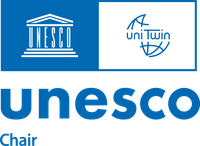Assistant Professor Department of Community and Leadership Development University of Kentucky

https://cld.ca.uky.edu/person/brad-olson
I joined the University of Kentucky in mid-2019 as an assistant professor with a teaching and research appointment focused on communications. Before that, I was an instructor at Penn State for six years where I taught undergraduate courses on communications, leadership, and non-formal (Extension) education.
Trained at a land-grant university, I believe in the public value of higher education, where institutions have not only the capacity but also the responsibility to advance scholarship and improve quality of life through its application. As a result, I am interested in finding effective ways to communicate scholarship, educate public audiences, and engage local stakeholders around community development issues.
As a social scientist, I value basic, applied, and community-engaged research. I use different types of data to study human behavior with the goal of informing the theory and practice of communication, education, and engagement. As an educator, I promote three habits of mind: 1) curiosity and lifelong learning; 2) openness to others, experiences, and ideas; and 3) critical thinking, reflection, and self-evaluation. I provide a flexible and diverse learning environment where students are welcome to share their experiences and tailor my courses to their interests.
In the past, I have explored community-based water management in Kenya, extension-farmer relationships in Russia and South Africa, and created a curricular framework for university-community engagement. Most recently, I modeled students and faculty members' community project participation and compared their project preferences with those of university administrators and local government leaders. The next chapter of my work will examine how different forms of communication (visual, verbal, written) and education (formal, non-formal, informal) effect decision making, behavior change, and collective action in community development contexts.
Contact me for assistance with:
- Designing applied communication-related courses and curricula
- Using communication and educational strategies to inform, persuade, and change behavior of target audiences related to food, agriculture, natural resources, and the environment
- Facilitating purposeful interaction between university and community members
- Increasing civic participation and prosocial behavior in communities
Areas of interest:
- Increasing civic participation and prosocial behavior – volunteering, fundraising, local governance, and grassroots organizing to improve conditions/quality of life for others
- Fostering responsive and responsible university-community engagement – mutually beneficial outcomes and interaction of students, faculty, and community partners
- Improving public communication and understanding of science – using public/mass media and educational programming to convey scientific processes and findings
- Evaluating communication and educational strategies – testing the efficacy and efficiency of strategies regarding learning, behavior change, and adoption-diffusion
- Assessing data and information use in the local public sphere and sector – information access and literacy, data privacy, and applications for decision and policy making




